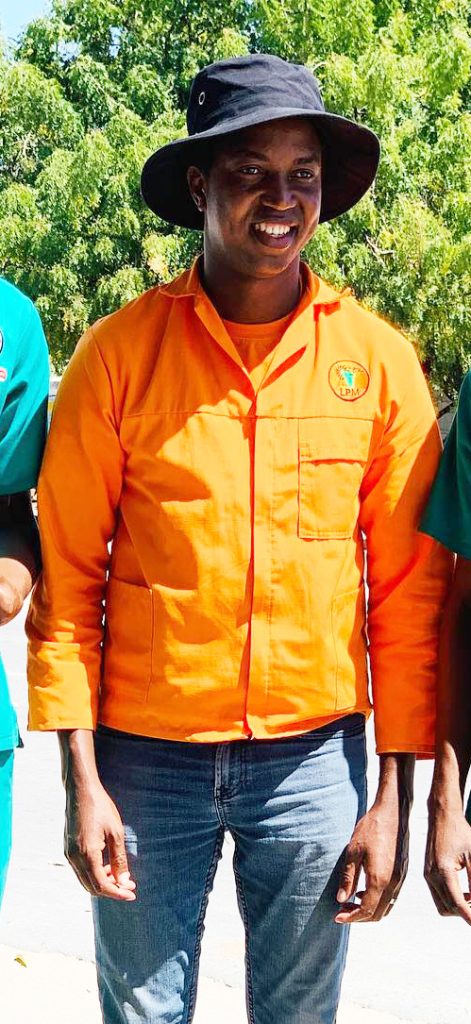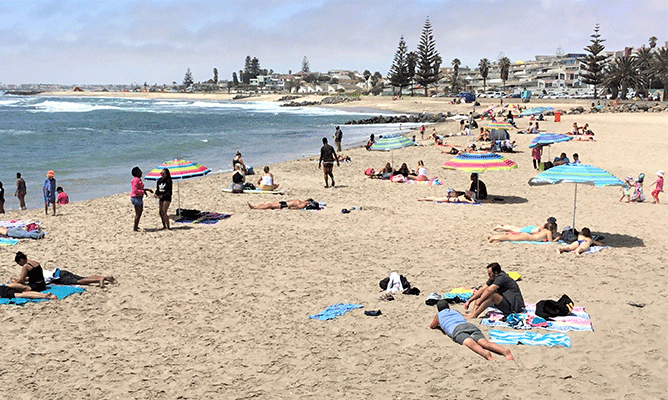Ondombe constituency councillor Hilaria Ndjuluwa has confirmed that the women who were recently filmed fighting over food are from her constituency.
Ohangwena governor Sebastian Ndeitunga says an incident in which three women in the region recently fought over a bag of maize meal was sparked by the delivery of too little drought-relief food.
A video of the episode was shared by Landless People’s Movement member Michael Amushelelo.
It shows the three women from Omunyekadi village in the Ohangwena region’s Ondobe constituency tearing at each other for a bag of maize meal, which the government distributed as drought-relief food.
Ndjuluwa says the incident took place at Omunyekadi village last Thursday.
She says she had a meeting with a committee tasked to distribute food.
They decided that drought-relief food for the involved village would be dropped off at a local police station in future.
Ndjuluwa says the food given to her constituency is not enough for all the villagers.
“We have some villages in my constituency with more than 500 households, but these villages only receive 285 bags, and this causes conflict between people.”

She says some individuals who are not in dire need of food also fight over food.
“They claim they have not received good rainfall,” Ndjuluwa says.
Commenting on food distribution, Ndeitunga said the fact that about 48 000 households in his region are in dire need of food is concerning.
He says 22 000 households are currently receiving drought-relief assistance.
“It’s difficult now for those distributing drought-relief food. Say they go to a village, they have a list of the beneficiaries who were previously identified, and when they reach there, giving the food to those who were identified, they find other hungry and angry ones who are not on the list.
“Then those ones try to take the law into their own hands to grab the food, because they know they are not on the list.
“If they don’t grab the food, they will not get any,” Ndeitunga says.
He says when food-distribution teams arrive at some villages, they often find large crowds of people.
“Some of them even give up. That’s why we are urging the community to understand the process. The government is there to take care of them, and I suggest that they should be patient.
“The regional council is busy identifying those in dire need of food, but the list keeps growing on a daily basis,” Neitunga says.
Some of the people who queue up for food are not registered, he says.

Ndeitunga says distribution teams are under pressure and often threatened, insulted and abused by members of the public.
He urges regional councillors, headmen, headwomen and community leaders to report the households in need, especially those with orphans, the elderly, and pregnant women.
“They should immediately alert the government through the regional governor or the Ministry of Health and Social Services. The councillors should immediately report these cases,” he says.
The governor says his region will not tolerate disorder or the politicising of drought-relief food distribution.
He says some people grab food to cause chaos and anarchy.
“That is not what we want. We want people to come forth peacefully,” he says.
Amushelelo says the video shows the harsh reality of the majority of Namibians.
“When we speak about over 1.6 million people living in poverty, those are not just mere statistics, it is the reality,” he says.
“When people are hungry, they don’t care about your peace and stability,” he says.
Amushelelo says there is an urgent need to address issues of high unemployment, so that people are able to buy their own food, instead of waiting for government handouts.
“These are the same regions that are always voting for those corrupt thieves who have kept our country in poverty,” he says.
Social justice activist Nafimane Hamukoshi says the video highlights the systemic failures that undermine the dignity of Namibian people, the deep-seated issues of inequality and the desperation that plagues society.
“It is disheartening to witness such scenes that reflect not only the immediate struggle for survival, but also a broader societal neglect of vulnerable populations,” she says.
Hamukoshi says the situation raises critical questions about our societal values and priorities.
“How can we allow our fellow citizens to be reduced to such desperate measures for survival, pitted against one another in their quest for sustenance?” she asks.
Hamukoshi calls for an urgent need for sustainable solutions like a basic income grant.
Stay informed with The Namibian – your source for credible journalism. Get in-depth reporting and opinions for
only N$85 a month. Invest in journalism, invest in democracy –
Subscribe Now!










